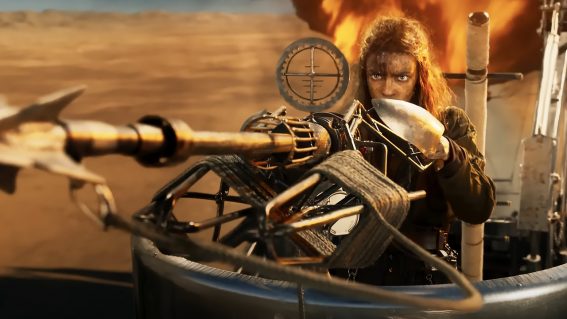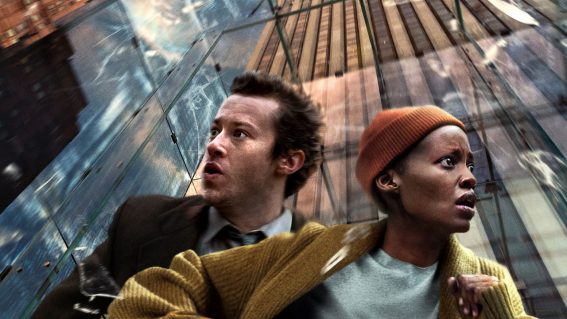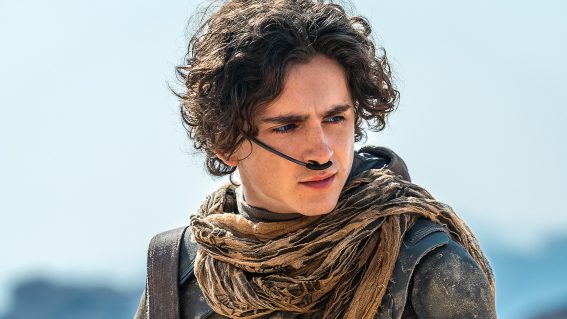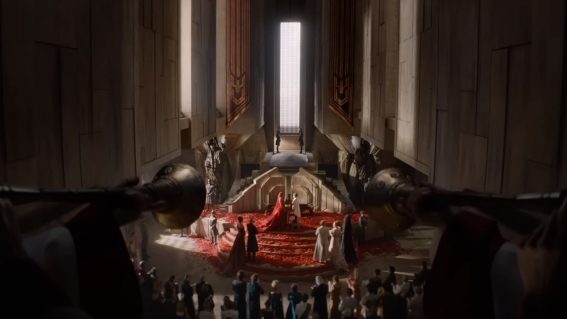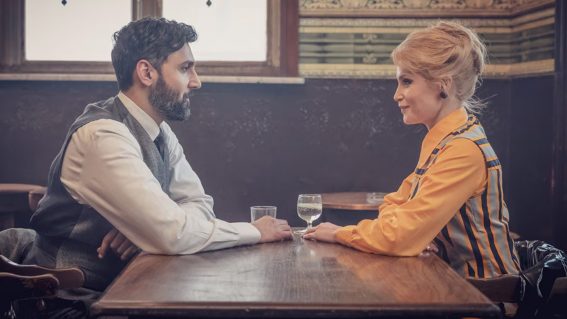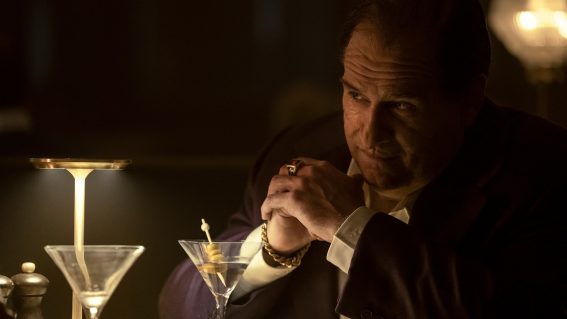Masterfully humane film The Fallout explores Gen Z trauma with compelling conviction
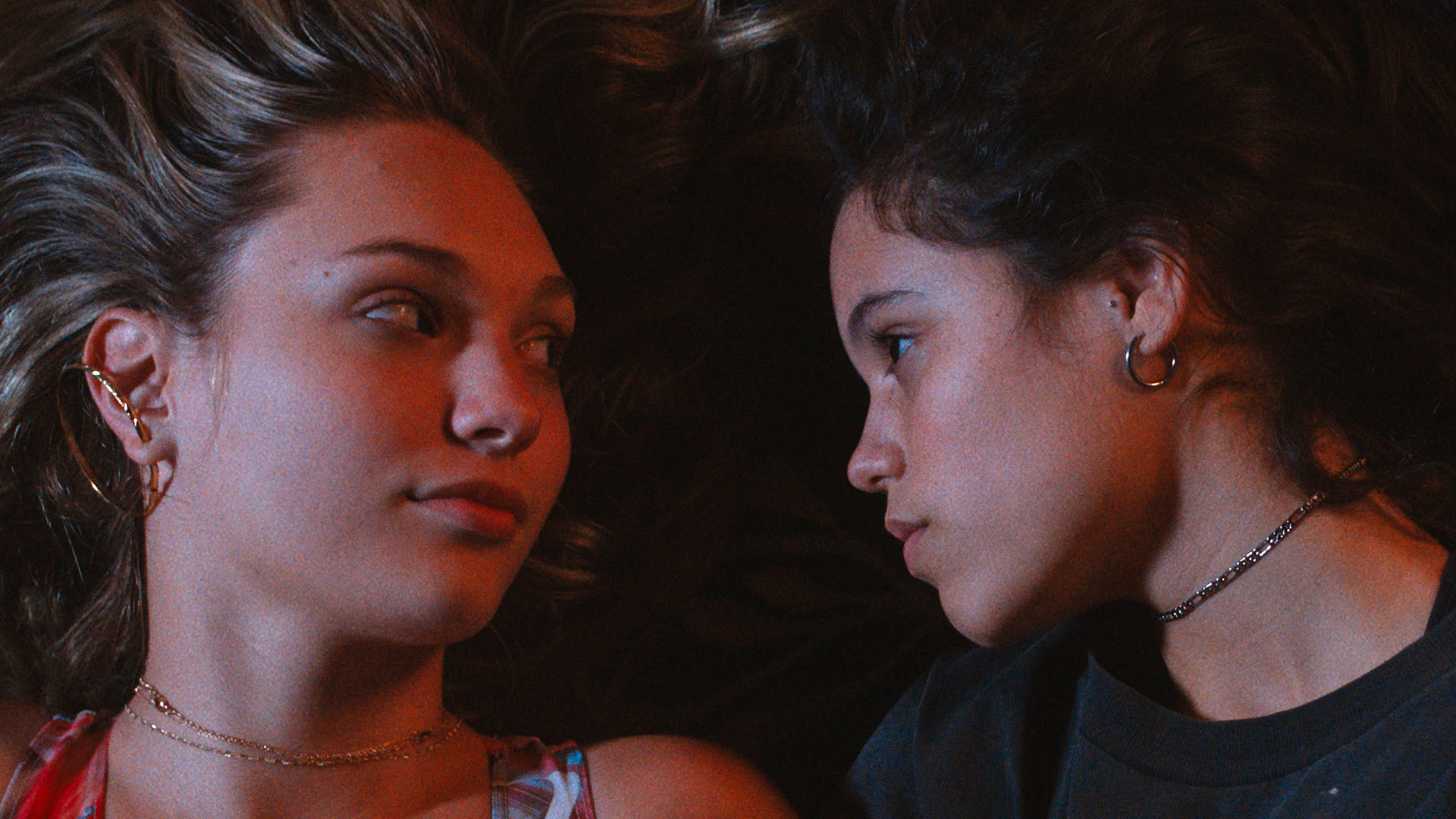
Jenna Ortega (Scream) plays a shaken teenager experiencing life after a high school tragedy in award-winning film The Fallout – stream it on Neon now. It’s a masterfully felt-through experience that makes the tragic plight of one generation relatable to every generation, writes Liam Maguren.
As a thirtysomething Millennial who’s never downloaded TikTok and only pretends to know what ‘cheugy‘ means, I’m no authority on Gen Z culture. That hasn’t stopped others of my ilk from producing content mocking the younger demographic for their perceived “wokeness,” phone-savvy or self-entitlement. Hell, the recent Texas Chainsaw Massacre showed a streamer threatening to cancel Leatherface in front of his followers. Cheug move, my dude.
Intent on treating Gen Z as people rather than punchlines, and doing an incredible job of it, The Fallout is a masterfully humane and felt-through experience that makes the tragic plight of one generation relatable to every generation.
In a knockout performance, recent Scream star Jenna Ortega anchors the film as Vada—an everyday 16-year-old who’s dorky and cool in equal measure. The film opens with what seems like a non-eventful weekday morning of Vada struggling to wake up for school, doing carpool karaoke with her bestie Nick (Will Ropp), comforting her younger sister Amelia (Lumi Pollack) about periods, and making awkward bathroom small-talk with Insta-famous classmate Mia (Maddie Ziegler).
Then the school shooting happens.
It’s an unbearably tense scene, with an unseen mass murderer committing unseen shootings that force Vada and Mia to hide in a cubicle. They’re soon joined by Quinton (Niles Fitch), smeared in his brother’s blood and fearing for his life. We’re not even ten minutes into the film but the horrific immediacy of the act places you right there on the toilet seat with them, only able to hear what they hear—gunshots, screams, more gunshots—and see what they see—each other’s terrified faces deep in the belief they’re going to die.
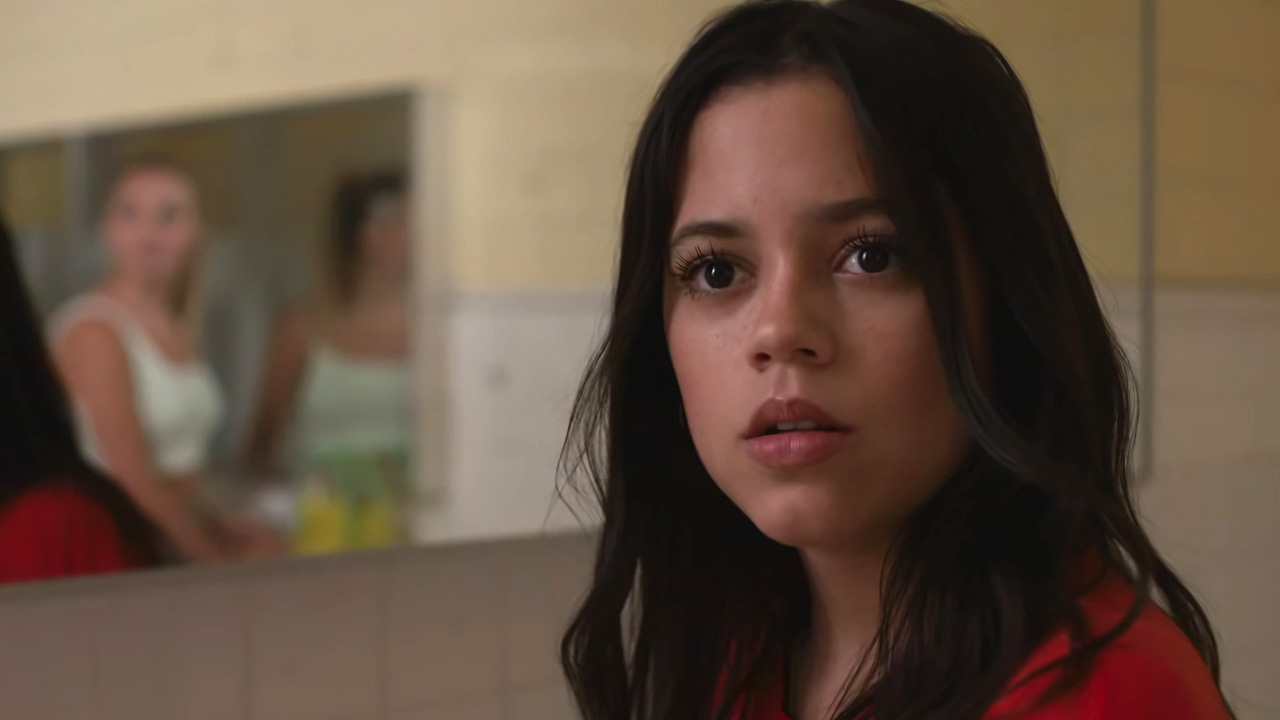
Eventually, the police arrive and the chaos ends. Though Vada avoided the shooting, a different kind of damage has already been done. How can a young person, who’s only started learning about the world and themselves, process such a traumatic event? This is what The Fallout explores with compelling conviction.
Ortega proved her ability to show full terror in Scream, but here, she impresses even further by combing through her character’s shades of anxiety. Vada feels numb, perhaps a defence mechanism to protect herself from the overwhelming weight of how she should be feeling. In front of her loved ones, she chalks it down to being “pretty chill” about it all. Her sudden morning gasps of fear say otherwise.
Vada’s loving mum and dad (Julie Bowen and John Ortiz) are doing a textbook parenting example in this situation, but a textbook can’t teach them how to relate to what she’s just gone through, so she spares her folks the trouble of explaining it. Vada even struggles to remain close to her closest friend Nick who, despite only being a few rooms away during the incident, is a whole world away from her experience. That distance widens as Nick boldly pursues an activist route to end gun violence in America.
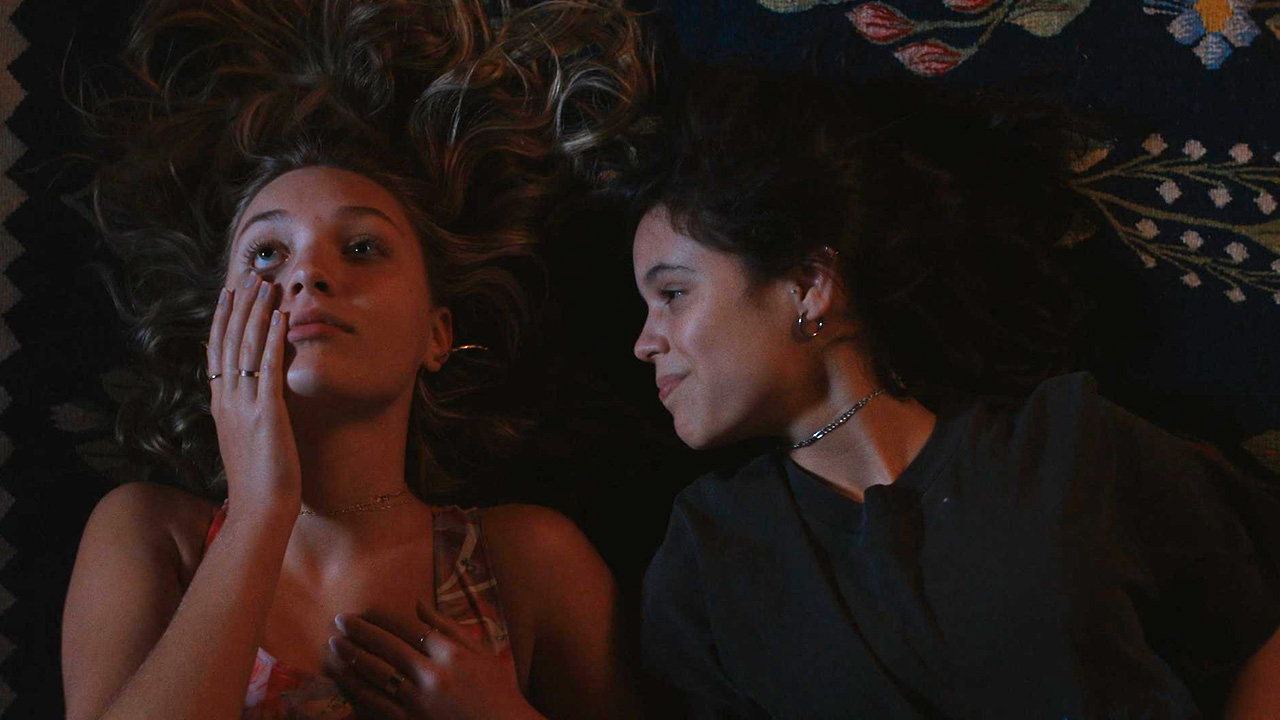
Almost instinctively, Vada and Mia reconnect via text to check on each other. Despite talking in lol-speak and cutesy emojis, they’re completely earnest about their feelings despite being somewhat strangers. The scene may essentially be nothing but DM bubbles in front of fuzzy close-ups, but it all rings true. This is 21st Century intimacy.
And while we’ve steadily been trained to assume Instagram influencers are two-faced assholes, soft-spoken Mia comes across as refreshingly grounded and actually just the coolest person in the world. We’re talking floats-in-a-pool-by-herself-with-a-glass-of-wine-while-smoking-a-doobie cool. She’s also painfully lonely, too scared to leave her (admittedly very nice) house while her two deadbeat dads continue touring the art world overseas. Mia’s also the only person in the universe who can relate to Vada about this unfortunately significant moment in both their lives.
This all sounds like a film bubbling towards scenes of burst tear ducts and screaming monologues conveying the biggest of emotions (it certainly worked for last year’s excellent Mass which covered similar grounds). However, The Fallout works because of its careful lightness, focusing instead on the small details that pin Vada down and the feelings she hides as to not burden anyone else.
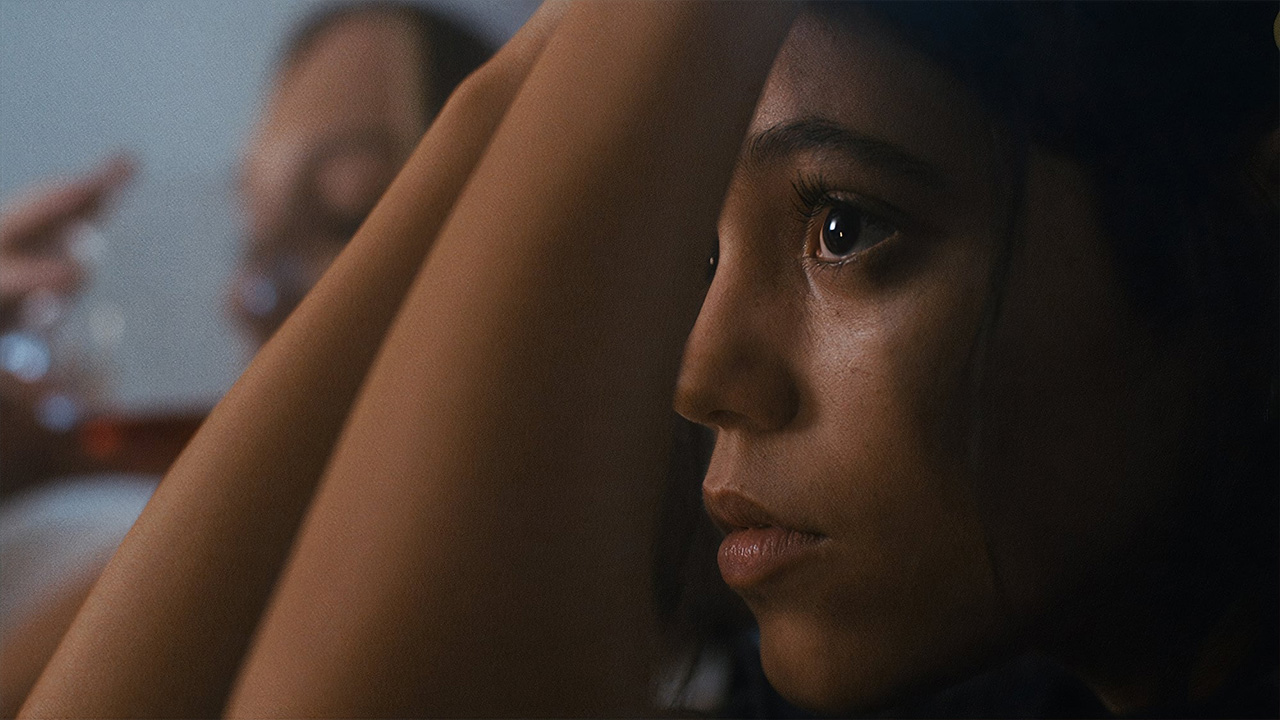
How can Vada feel miserable when Quinton lost his brother? Or when Mia’s parents aren’t there for her? Or when Nick is putting himself out there to prevent future shootings? Does she have any right feeling too scared to go to school? Or to flinch at the sound of a crushed soda can? Writer-director Megan Park’s superb storytelling massages these knots out of Vada and validates her feelings with such engaging finesse, it’s hard to believe this is their feature debut.
Additionally, and I know this sounds strange for a film about a school shooting, The Fallout caught me off guard with its surprising sense of humour. A lot of it, observing modern teens’ relationship to the current world, comes directly from the script (“High school sex is very ’90s”) and from Ortega’s delivery (“Can I… trust… this meme?”). There’s also a painfully funny moment involving drugs and a staircase that had me wondering if Ortega was channelling Leonardo DiCaprio’s Jordan Belfort from The Wolf of Wall Street.
(It’s also important to address that some of the Zoomer memes went completely over my head. This was especially true of a simple chat about Drake that suddenly divulged into them yodelling “JIMMYYYYYYY.” It had me scratching my grey beard, adjusting my lumbar support cushion, and accepting that I’m old.)
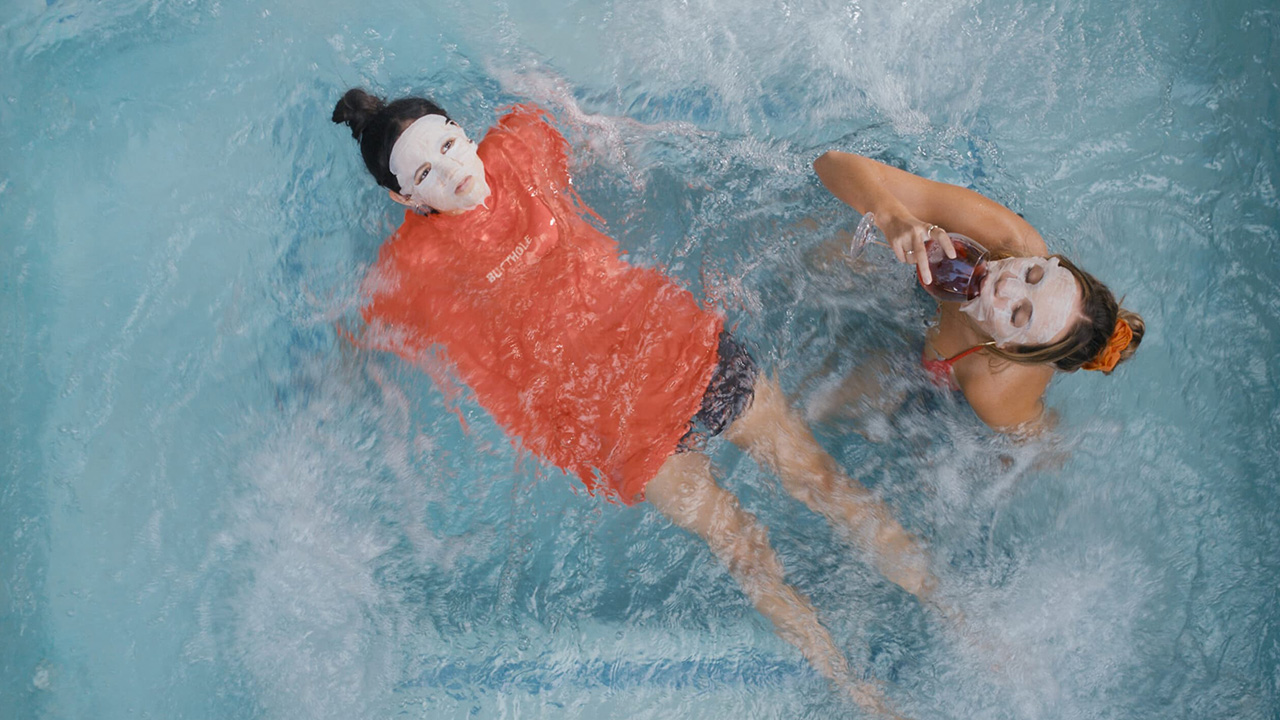
The humour not only lightens the tone but also softens the viewer—and the small drama hits harder because of it. There are many standout moments between Vada and her sister Amelia, but one near the end of the film confronts Vada with the fact that her closest relationships are fading. If any moment’s gonna make you well up, it’s this one.
The great Shailene Woodley also makes an appearance as Vada’s therapist. She might only have two scenes, and she never leaves her seat, but her exchanges with Ortega are some of the most memorable. Her character’s a lot like the movie itself—confronting yet unexpectedly funny while remaining level-headed and extremely observant.
To be fair, every actor’s great in this but The Fallout is undeniably Ortega’s calling card. If the first 88 minutes don’t convince you, the final minute will.





